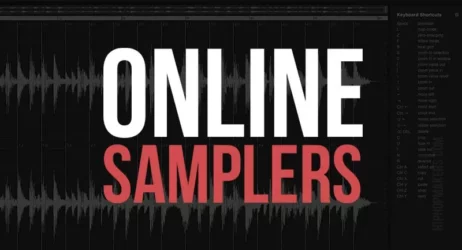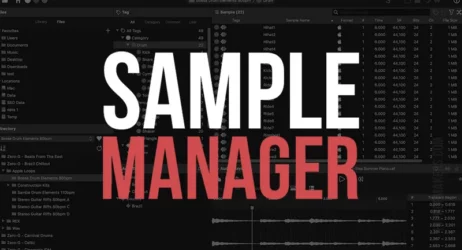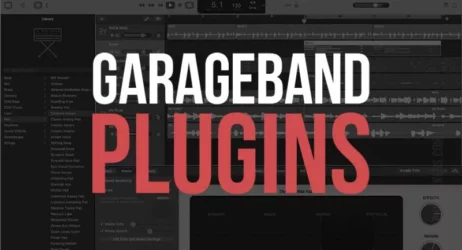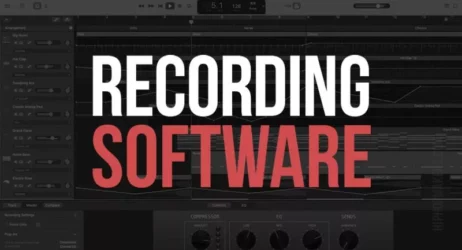Darrell “Digga” Branch has worked with Jay-Z, 50 Cent, Cam’ron, Jennifer Lopez and many more. He has contributed to over 20 million records sold. Digga shares some of his insight into the music industry.
How long have you been making music?
Man, since I was about 9 years old. I started out rapping and then DJing and then producing.
What equipment are you using?
MPC 4000, Reason 4.0, Pro Tools with plugins. That’s pretty much it.
You said you use reason too, how do you use it with your MPC setup?
I use the MPC as a controller to trigger the Reason sounds. I have a MIDI Controller connected to the MPC so I pretty much do all the sequencing in the MPC. I don’t like the sequencer in reason but I love having easy access to the sound modules.
Do you have a preference for hardware or software?
I’m an MPC guy. I look at the Akai MPC as an instrument so I need to play it to feel the music. It’s hard to get use to the mouse and the MIDI keyboard.
How much time do you spend making music?
Lately, not that much time. Maybe about three days a week. I’m at the point where I can work on beats that I will keep instead of making a bunch of beats that are wack and unusable.
Do you have a manager? If so and if so, how has it helped you in getting heard?
No, I don’t have a manager. I had a few managers, but most managers are motivated by money.
So you have had a couple of managers, but you don’t know. Did you have some bad experiences with them?
I wouldn’t say bad experiences. They just weren’t a benefit to me. If you’re paying someone to perform a service, you expect certain things. I didn’t get that. I’m writing a book called “The Beat Game” coming out sometime this summer about my whole experience with managers, lawyers, accountants, and the business in general. I think it would help a lot of aspiring producers.
What is your beat making process?
I usually make the beats in my head. If its an original idea, I hear the sounds in my head and try to duplicate it on my set up. If I hear a sample, I try to figure out how I can chop it and create something unique. I never force it though.
How do you know when a beat is done?
Honestly, It’s never done until you create a song. If you’re a good producer, you will know when you need to add or subtract elements from a beat.
How do you describe your style?
I called my style “The Feeling”. No matter what kind of track I’m producing, it has to move you in some sort of way. If you play any of my tracks without vocals, the production can stand by itself. You would be amazed at how many tracks out there that don’t give you that.
How many beats do you make a day?
It varies. On a good day, I could start about four beats that could turn into something I will keep.
What are some accomplishments that you are most proud of in the production game?
I have to say my work on Cam’Ron’s first album “Confessions Of Fire”. That was my first piece of work released commercially and it went gold. I co-executive produced that album and produced 9 songs for that album. I had just graduated from college.
Do you sell beats online, face-to-face or both? And do you have a preference?
I try to get face to face contact with the artist and/or managers. You can get a better idea if people are bullshitting you or not. For the most part, artist are usually willing to check out the music but some managers are more Hollywood than the artist. I have some tracks on pmpworldwide. com and some on mybeatshop.com. I decided to put some beats on mybeatshop after a conversation with the owner. I really like what he’s doing over there.
You have produced for some big artist, do you usually work in the studio with them, or do you just send them beats?
A little bit of both. I’ve worked with Jennifer Lopez in the studio. 50 and Jay ran my records by me before they were released. The majority of artist record to my music and then we talk about making changes later. Nowadays, music artists don’t want to record with producers anyway. That’s part of the reason why music is not that great today.
When you were starting out, what methods did you use to get your beats heard by these big name artist?
Well, in this business it’s all about who you know. Every placement is a stepping stone. When I was working on Cam’Ron’s first album, I built a few relationships with different camps and industry people. I pretty much just showed people how serious I was about shopping my tracks. You have to figure out what people can help you and connect you with an opportunity. I still deal with it because the times have changed. You’re as good as your last hot beat.
When you submit beats, do you submit hooks too? Or suggestion on what kind of lyrics you imagined on your beat?
If I make a beat and I come up with a hot hook, I’ll submit it. Nowadays, you can’t make any suggestions because you’re not in the studio while it’s being recorded. If I send beats to A-list artist like Jay-Z, etc, I don’t worry about that too much.
In your opinion, what types of things should the new/young producer concentrate on most to develop their skills?
Developing an understanding of music. Don’t be scared to be different. Too many young producers are satisfied with making beats that sound like other people. With today’s technology, it makes it easier to sound like you know what you’re doing. If you are given all the sounds in a program and then you copy Lil Jon’s programming, that’s not making beats, that’s duplicating.
You don’t have to name a amount, but has dealing with the music industry paid you well? Like are the checks your getting these big name artist leaving you set for months, or do you have to hustle hard for that next beat sale?
You always have to hustle because one hit track won’t make you rich. I have sold over 20 millions records over the course of my career. But a lot of the artist I have worked with are unrecouped. The only artist I receive checks from are Jay-Z, 50 Cent and Jennifer Lopez. Right now, it’s hard to consistently get placements so you have to find others ways to generate income.
How much time do you spend digging for samples?
Not much. Sometimes if I get a block, I’ll go out and record shop. For the most part, I go through records I already have because I have thousands of them. I usually hear things differently on different days.
How do you feel about the music that’s on the radio today?
I’m not upset about it anymore because radio as we know it is about to go down. There are too many ways for people can get music now. We don’t have to be held hostage to the radio anymore. The music on the radio is made for the radio.
You have worked with a lot of big names, so is it easier to get placement on a big albums now, or is a struggle to still get heard by some of these artist?
It’s still a struggle because there is more competition now.
Artist can afford to have 100 producers submit tracks until they’re ready to pick something. It’s more about timing now.
I think I read in another article, your first major placements were with camron, are you guys still working together nowadays?
Nah
Tell me about your website PSKill University? ( www.pskilluniversity.com )
Man, I’m so excited about it. Pskill University is a Online school I’m starting for beat makers and producers. I wanted to start a more organize way to share knowledge about production. I still emails from aspiring producers asking me questions because they can’t find the answer. I have nothing against Music schools but I feel like there is a lot of information they can’t teach you. At Pskill, all of the instructors have first hand knowledge about production and industry experience. Students will be able to take courses on sampling, beat shopping, producers income, etc.
When can we expect Pskill University to launch?
We’re shooting for sometime in May. The response has been great.
Can you tell me about Six Figga Entertainment?
Six Figga Entertainment is the parent company to everything I’m doing right now. I have Digga Talk Radio, ProducersSkill.com, Pskill University and the record label. I have my artist Fab Nickel and Thonio along with a staff of producers too.
What made you start a podcast?
I wanted to communicate with an audience that understands where I’m coming from. I think there is much more to a producer than turning knobs or dancing in videos. I’m trying to start a movement that’s an alternative to that. I think we should talk about politics, technology and other issues that relate to music production.
Can I have the direct url to your podcast?
Check me at Digga Talk Radio. I’m actually in the process of doing a deal with a large internet radio network too.
I have seen a couple of your Youtube videos. What made you do them? ( youtube.com/user/sixfigga)
To be honest, I just did one for pmpworldwide.com. After that, people just started emailing to do more, so I said why not. I was already thinking about teaching some classes at a few high schools in New York. That idea eventually lead to me forming Pskill University.
What is your going rate for beats, and how do you determine what a beat is worth?
They can go from $2500 to $20,000. Every situation is different though. If the relationship is worth me lowering my price, I will. For me, the upfront advance is not what’s important. Most artist don’t recoup but they still sell records. To make a long story short, your publishing splits have to be right so you can always receive royalties. Check out Pskill University for more lol.
What tips do you have for new producers?
Develop your production skills like a sport. Work on your chopping skills, drum programming, arranging, etc. You gotta master your layups and jumpshots.
What artist do you really want to work with right now?
I’m still trying to land something on Jadakiss and Ludacris. To be honest, I just want to hear it for myself.
What upcoming projects do you have?
I’m working on some stuff with the Clipse and Re-up gang, Killa Mike and Lil Kim. I also got Fab Nickel’s “How To R.O.B” and Thonio’s “The Life Of Anthonio Ray Williams” dropping this summer on Six Figga Entertainment, Inc. Don’t forget about ProducersSkill.com and PskillUniversity.com launch soon!
How can people get in contact with you?
Hit me up on https://www.instagram.com/sixfigga_digga or digga@sixfigga.com






Dope interview. I’m going to have to check out that pod cast.
interesting…no doubt!
Nice Interview…
It’s really a nice and helpful piece of information. I am
happy that you just shared this helpful info with us. Please stay us up to date like this.
Thanks for sharing.